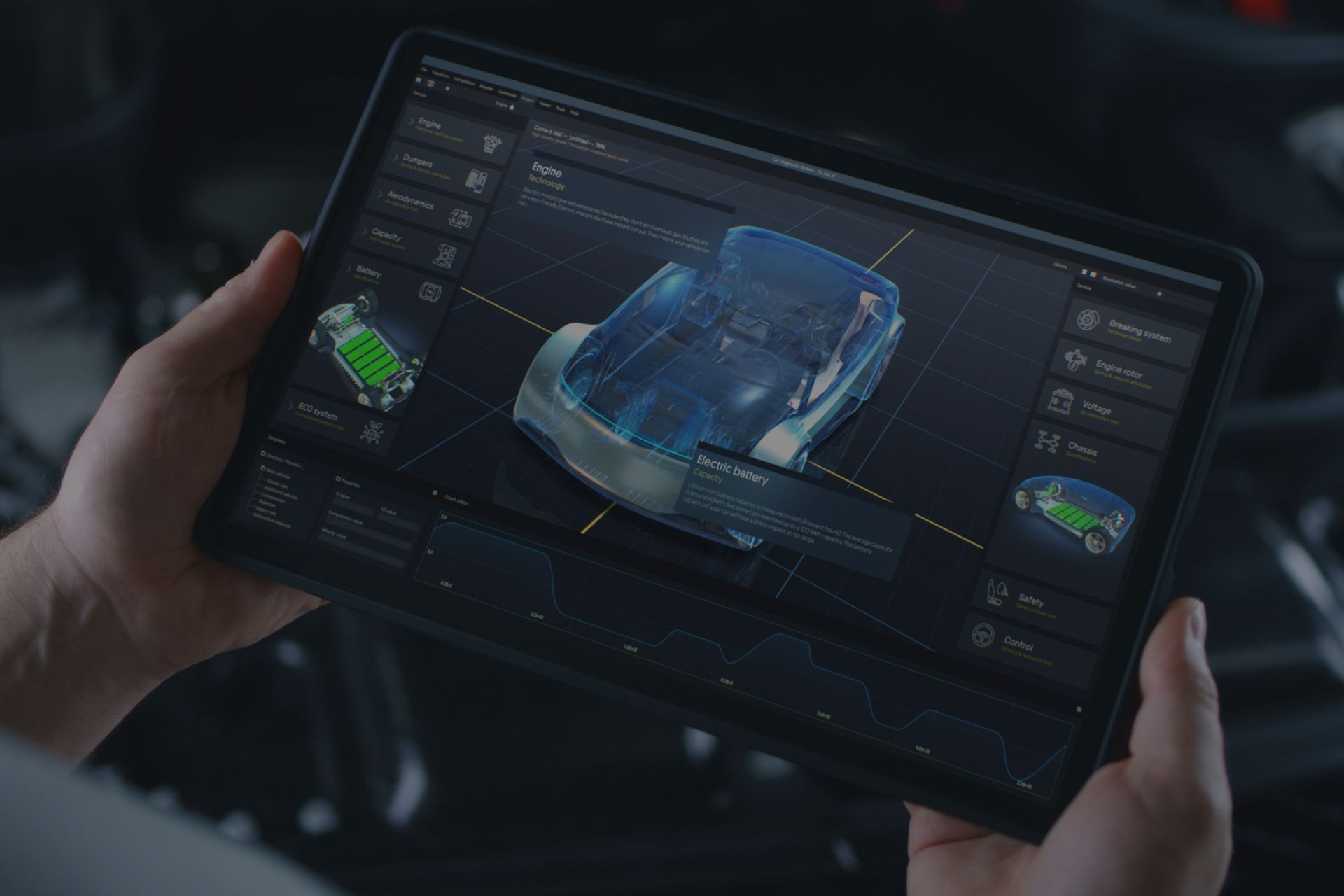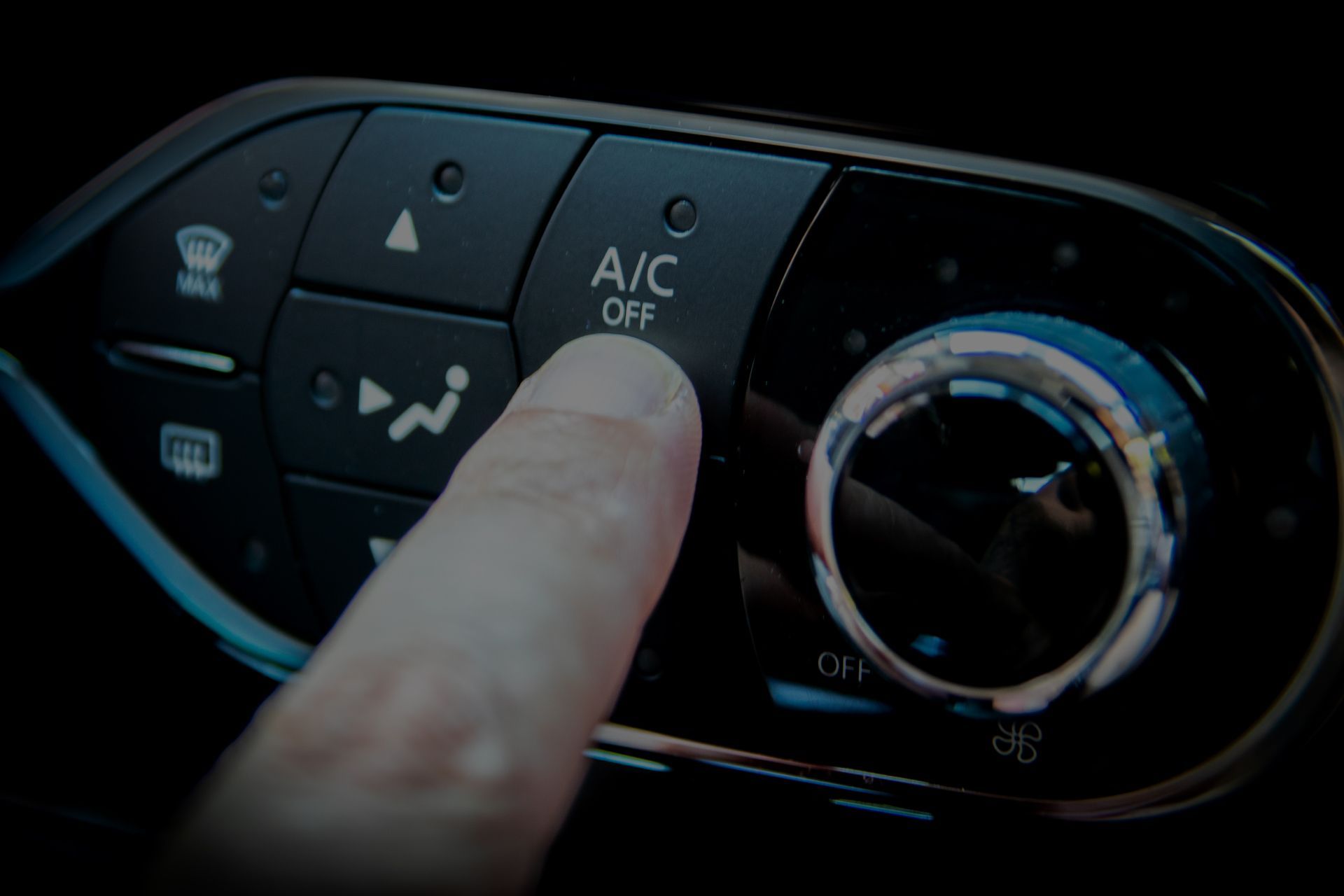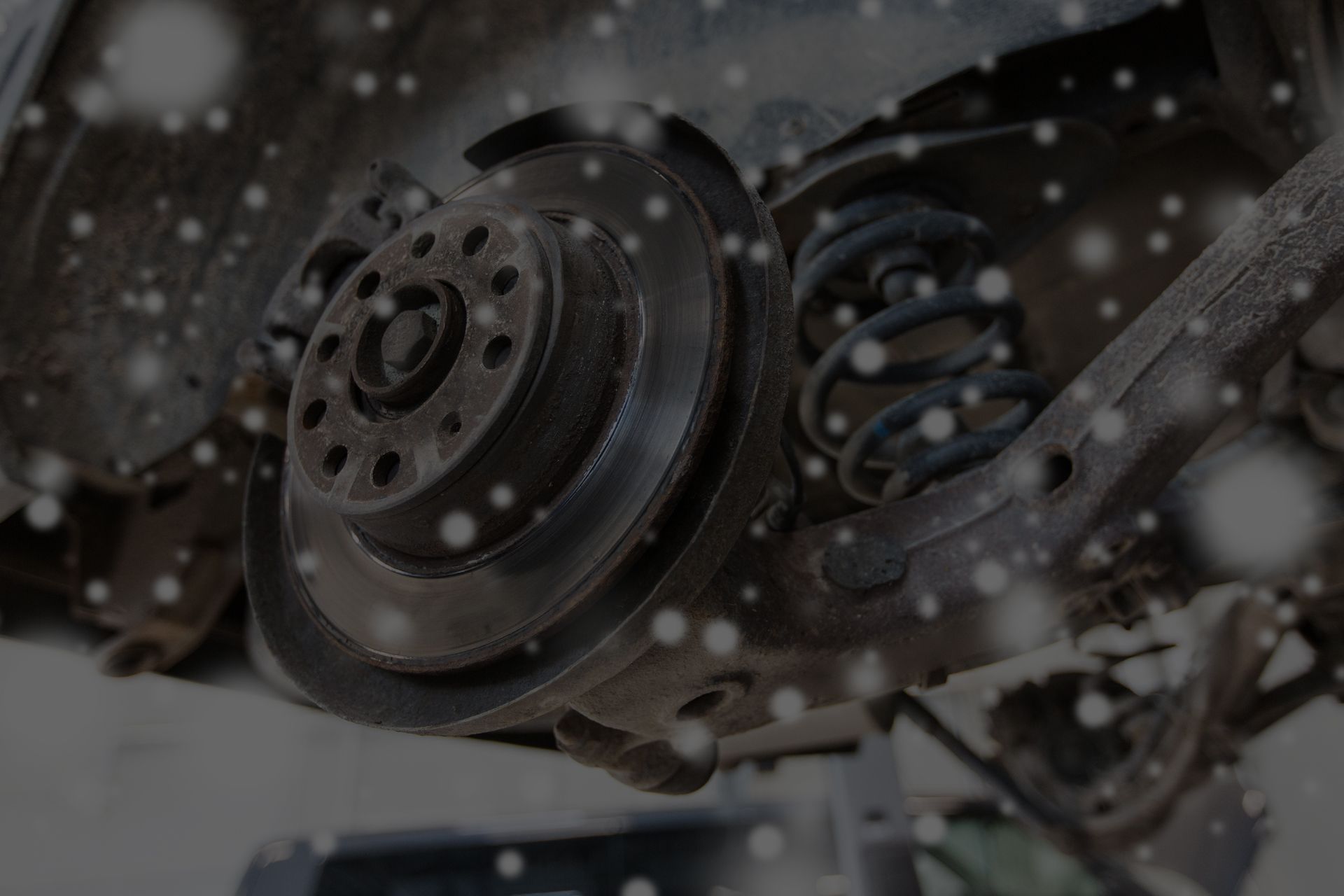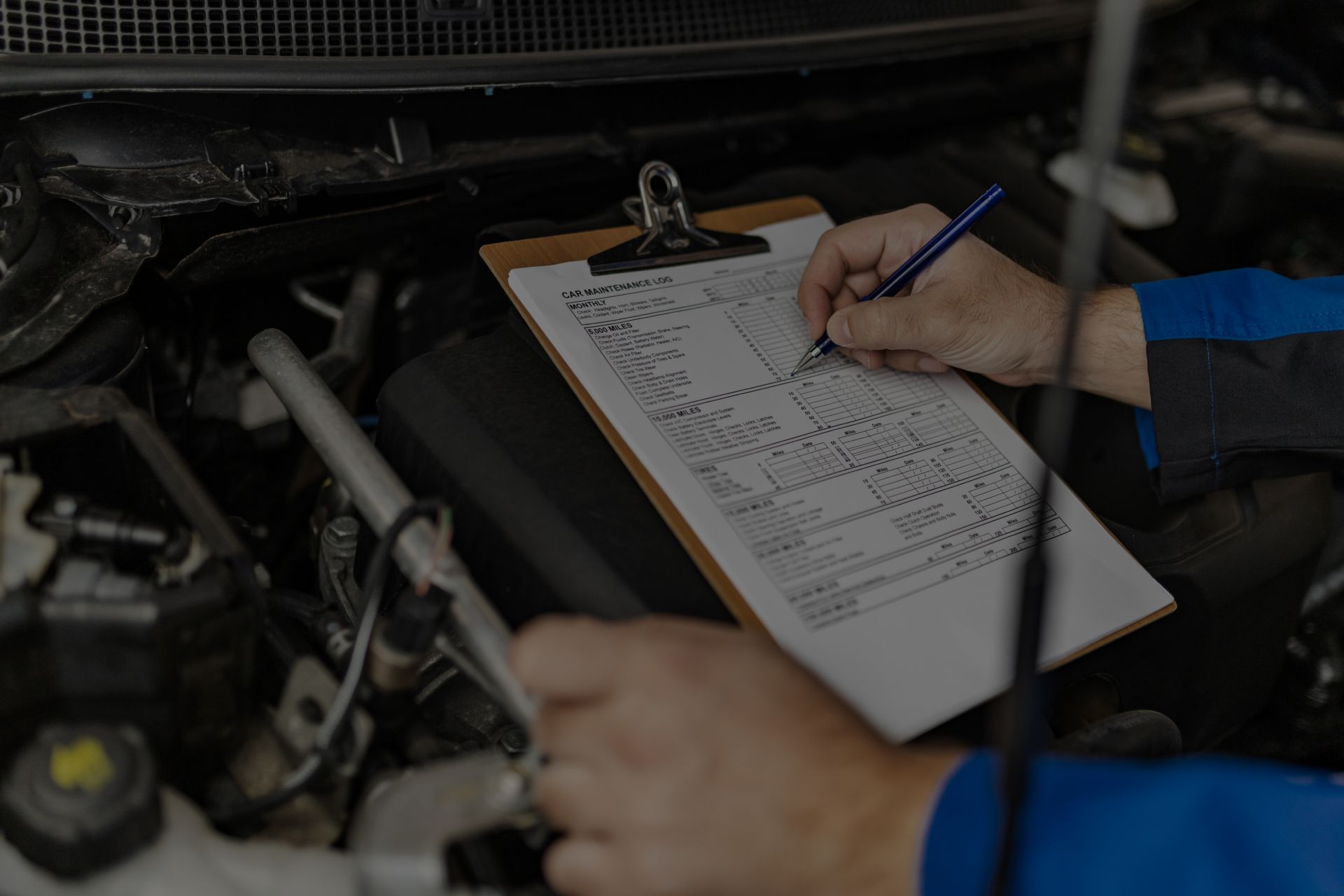Fall in Denver can fool you. One day you're driving to work in shorts and a t-shirt, and the next morning you're scraping ice off your windshield in the parking lot at Cherry Creek Mall. Colorado's unpredictable fall weather catches many drivers off guard, but smart preparation can keep you safe and comfortable through the seasonal transition.
Denver's unique climate creates challenges that drivers in other parts of the country rarely face. Our dramatic temperature swings, early snowstorms, and high altitude combine to test your vehicle in ways that can leave unprepared drivers stranded on I-70 or stuck in a Safeway parking lot.
Your Battery Faces Its Biggest Test
Cold weather is brutal on car batteries, and Denver's fall can bring freezing temperatures as early as late September. Your battery loses about 50% of its power when temperatures drop to 32 degrees, and Denver mornings can plunge even lower without warning.
If your battery struggled at all during summer heat, fall will likely finish it off. Heat damage weakens internal components, making them more likely to fail when cold weather hits. That sluggish start you noticed leaving Coors Field after a late-season Rockies game could be a warning sign.
Get your battery tested before you need it most. A simple voltage test can reveal whether your battery will make it through fall and winter, or leave you calling for a jump start in the parking garage at the Denver Tech Center.
Check All Your Fluids Before Temperatures Drop
Colorado's dry fall air and temperature swings are hard on every fluid in your car. Coolant that seemed fine in summer heat might not protect against sudden freezes that can hit the Front Range without much warning.
Your windshield washer fluid needs special attention. Summer washer fluid will freeze solid during those surprise October snowstorms that dump 6 inches on Denver overnight. Switch to winter-grade washer fluid that can handle temperatures well below freezing.
Don't forget about brake fluid either. Colorado's mountain driving and sudden stops on steep grades like those heading down from Lookout Mountain put extra demands on your braking system. Moisture in brake fluid can freeze, creating dangerous brake performance issues.
Tires Need Fall Attention Too
All-season tires start losing traction when temperatures consistently drop below 45 degrees – something that happens in Denver much earlier than most other cities. If you're planning to keep driving those summer performance tires through fall, you might find yourself sliding around the first time snow hits the Tech Center or Stapleton area.
Check your tire tread depth using the penny test. Colorado fall weather can include everything from rain to sleet to snow, often in the same day. Good tread depth helps you maintain control whether you're driving through puddles on Colfax or navigating slush in the King Soopers parking lot.
Consider when you'll switch to winter tires if you use them. Many Denver drivers wait until the first snowstorm to make the change, but tire shops get slammed once snow flies. Beat the rush by planning your tire changeover for mid-October.
Your Heating System Gets Its First Real Test
You probably haven't used your car's heater since last spring, but fall mornings in Denver will put it back to work quickly. A heating system that's been sitting unused all summer can develop problems you won't discover until you're shivering on your commute to downtown Denver.
Test your heater and defroster while temperatures are still mild. These systems are critical for both comfort and safety. A defroster that can't clear morning frost or snow from your windshield can turn a simple drive to Park Meadows into a dangerous situation.
Check your cabin air filter too. Summer dust storms and wildfire smoke can clog filters, reducing heating efficiency and air quality inside your car.
Lights and Visibility Become Critical
Fall means shorter days and longer periods of dawn and dusk driving. Those burnt-out headlights or taillights that you could ignore during long summer days become safety hazards when you're driving home from work in the dark.
Test all your lights – headlights, taillights, brake lights, and turn signals. Replace any burnt bulbs before you need them. Consider upgrading to brighter LED headlights if your car still has dim halogen bulbs. Better visibility helps you spot road hazards and makes you more visible to other drivers on busy routes like I-25 or the 6th Avenue freeway.
Windshield Wipers Face Tougher Conditions
Summer sun and heat are hard on wiper blades, leaving them cracked and streaky just when fall rain and snow arrive. Denver's intense UV rays at high altitude are particularly damaging to rubber components.
Replace worn wiper blades before the first storm. Nothing's more dangerous than trying to see through streaky windshield wipers during a sudden snowsquall on I-70 heading toward the mountains. Good visibility can mean the difference between a safe drive and a scary situation.
Build Your Emergency Kit
Colorado fall weather can change rapidly, turning a routine drive into an unexpected adventure. Smart Denver drivers prepare for the possibility of getting stuck in snow or stranded by sudden weather changes.
Your emergency kit should include:
- Blanket and warm clothing
- Non-perishable snacks and water
- Flashlight with extra batteries
- Ice scraper and snow brush
- Jumper cables
- Basic tools
- First aid supplies
Keep these items in your car throughout fall and winter. You never know when a quick trip to Whole Foods might turn into a longer ordeal because of unexpected weather.
Don't Forget Regular Maintenance
Fall is also a good time to catch up on routine maintenance that protects your investment. Fresh oil handles temperature changes better than old, degraded oil. Clean air filters help your engine run efficiently when it's working harder in cold, dense air.
A comprehensive fall inspection can catch small problems before they become expensive emergencies during the busy holiday driving season.
Get Fall-Ready at ImportSports Performance
Don't let Colorado's unpredictable fall weather catch you unprepared. Whether you're commuting to Boulder, heading up to Breckenridge for early season skiing, or just running errands around Denver, your car needs to be ready for whatever weather Colorado throws at you.
At ImportSports Performance, we've been helping Denver drivers prepare for Colorado's challenging seasons since 1997. Our ASE Certified technicians know exactly what your vehicle needs to handle everything from crisp fall mornings to surprise snowstorms.
Is your car ready for Denver's fall weather? Call ImportSports Performance at (303) 752-2422
to schedule your fall vehicle inspection. We'll check your battery, test your heating system, inspect your tires, and make sure all your fluids are ready for temperature drops. Don't wait until the first storm hits – prepare your vehicle for fall weather today.






